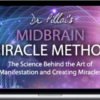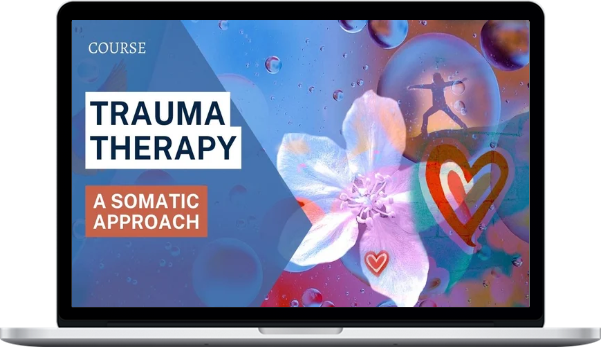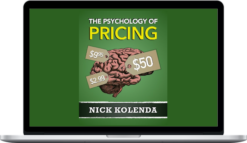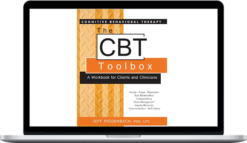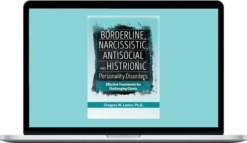Albert Wong – Trauma Therapy: A Somatic Approach – Collection
$149.00 $33.00
»Delivery: Within 24hs
Description
Albert Wong – Trauma Therapy: A Somatic Approach – Collection
Trauma can stay with us long after a threat is gone. It can lodge itself into our felt experience and embed itself into our bodies and our minds. Even after years of talk therapy and medication, the effects of trauma can sometimes still linger. Fortunately, there is another way.
Trauma therapy from a somatic perspective invites us to reconnect with the oft-forgotten “felt sense” of the body. Instead of working strictly from a talk-therapy approach, somatic psychotherapy uses the wisdom of the body to help guide a client out and through. In this course, Dr. Albert Wong will share the underlying principles of trauma therapy from a somatic perspective, including tools we can use with our clients, ourselves, and those we love.
Students will learn to help clients resource, stabilize, process, metabolize and integrate experiences of trauma. Topics covered will include: the neurobiology of trauma, polyvagal theory, fractionation, full-octave experiencing, orienting, tracking sensation, the window of tolerance, the three phase and three boards models of trauma treatment, identifying and installing resources, polyvagal mapping, working with implicit memory, pendulation, dual awareness, assessing and regulating traumatic arousal, and stabilization. Additional attention will be given to understanding and treating dissociation and fragmentation, the neurobiology of trauma, and polyvagal approaches to treating trauma.
What You’ll Learn In Trauma Therapy: A Somatic Approach – Collection
- Module 1: What is Trauma? A Roadmap to Healing
In this module, we will explore what happens when someone experiences trauma and lay out a general road map to how we can heal. We will also introduce basic somatic concepts and skills relevant to trauma treatment, including fractionation, full-octave experiencing, orienting, the “felt sense”, tracking sensation, resonance, the window of tolerance, and the three phase and three boards models of trauma treatment. - Module 2: Identifying and Installing Resources: Full-Octave, Attachment-Based, and Polyvagal Approaches
Prior to embarking on any treatment of trauma, it is important to identify and reliably install resources into the person’s experience. In this module, we demonstrate how to help clients identify and access resources from a range of perspectives, including Full-Octave, Attachment-based, and Polyvagal Approaches. We introduce the techniques of Polyvagal Resource Mapping and Attachment-based Bilateral Resource Installation. We also explore the neurobiology of trauma including polyvagal theory, and its implications for trauma treatment. - Module 3: How to Work with Implicit Memories That Are Embedded in the Nervous System
Our nervous system sometimes fools us into thinking that a past trauma is happening in the present. We cannot rely simply on explicit memories to understand trauma history, because many trauma memories are implicit, i.e., embedded in our nervous system, beneath the level of conscious awareness. In this module, we explore how to help clients rewire their nervous system’s response to trauma by working with implicit memory through titration, pendulation, dual awareness, assessing and regulating traumatic arousal, and stabilization. - Module 4: Working with dissociation and fragmentation
When someone experiences trauma they frequently dissociate from their bodily experience and fragment from themselves. In this module, we review the Structural Dissociation model of trauma treatment, and how to help a person recover from a sense of inner fragmentation. In particular, we will learn how to help clients befriend their inner parts, repair their past, and restore their connection with their younger selves.
About Albert Wong
Dr. Albert Wong is the former Director of Somatic Psychology at John F. Kennedy University and a leading clinician and educator in the field of somatics. He served as residential staff at the Esalen Institute and as Core Faculty at the California Institute of Integral Studies. A Marshall Scholar, he has long standing interests in the intersection of somatics, psychotherapy, and scalable technology. He has been featured on PBS, in Time Magazine, and in the book The American Soul Rush.
His work has been published in titles ranging from the scientific journal Biological Cybernetics to the book anthology Radical Spirit. He was educated at Princeton, Oxford, and the University of Tennessee and is the recipient of numerous national awards (Westinghouse Science Talent Scholarship, Goldwater Scholarship).
More courses from the same author: Albert Wong
Delivery Policy
When will I receive my course?
You will receive a link to download your course immediately or within 1 to 21 days. It depends on the product you buy, so please read the short description of the product carefully before making a purchase.
How is my course delivered?
We share courses through Google Drive, so once your order is complete, you'll receive an invitation to view the course in your email.
To avoid any delay in delivery, please provide a Google mail and enter your email address correctly in the Checkout Page.
In case you submit a wrong email address, please contact us to resend the course to the correct email.
How do I check status of my order?
Please log in to HealthcareCourse account then go to Order Page. You will find all your orders includes number, date, status and total price.
If the status is Processing: Your course is being uploaded. Please be patient and wait for us to complete your order. If your order has multiple courses and one of them has not been updated with the download link, the status of the order is also Processing.
If the status is Completed: Your course is ready for immediate download. Click "VIEW" to view details and download the course.
Where can I find my course?
Once your order is complete, a link to download the course will automatically be sent to your email.
You can also get the download link by logging into your HealthcareCourse account then going to Downloads Page.
Related products
Total sold: 3
Total sold: 1

